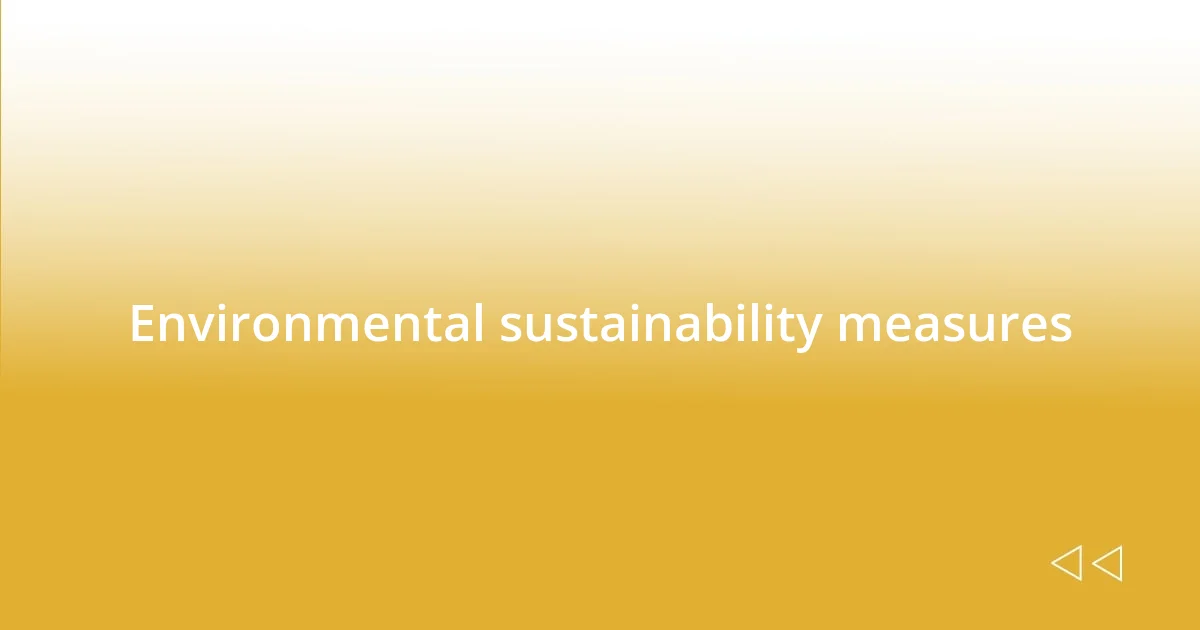Key takeaways:
- Ethical fast food emphasizes sustainable choices, animal welfare, and supporting local economies, enhancing both personal health and community well-being.
- Transparency in sourcing ingredients fosters trust and helps consumers make informed decisions while promoting environmental stewardship.
- Choosing ethical fast food options enhances the dining experience by connecting consumers to their community and reinforcing shared values over convenience.

Understanding ethical fast food
Ethical fast food revolves around more than just speed and convenience; it’s about making conscious choices that support a sustainable food system. I remember visiting a local fast food spot that proudly advertised their use of organic ingredients. It felt good to know that, even in a quick meal, I was contributing to a healthier planet.
When we talk about ethical fast food, we often consider animal welfare and sourcing practices too. Have you ever thought about where your chicken nuggets really come from? I once watched a docuseries that exposed the sad reality of many industrial farms, and it completely shifted my perspective. Supporting brands that prioritize humane conditions can make a world of difference, not just for the animals, but for us as consumers who want better quality food.
Sustainability is another cornerstone of ethical fast food. I recall the joy of biting into a burger made from locally sourced ingredients—it tasted fresher, and I felt a connection to my community. This brings me to a thought: how can we support businesses that are committed to ethical practices? Making informed choices empowers us to drive change without sacrificing the convenience we all love about fast food.

Importance of ethical practices
Ethical practices in fast food are essential for fostering a more responsible and health-conscious society. I once heard an inspiring talk from a chef who emphasized that every meal we choose has the power to promote environmental stewardship and social justice. It made me reflect on my own eating habits, recognizing that supporting brands with ethical practices directly impacts not just our health, but the well-being of our planet and society as a whole.
- Encourages transparency in sourcing, allowing consumers to make informed choices.
- Fosters community resilience by supporting local farmers and producers.
- Protects animal welfare by advocating for humane treatment.
- Reduces environmental impact through sustainable practices.
- Reacts to consumer demand for healthier, high-quality food options.
When I find a restaurant that actively incorporates ethical practices, it feels like I’m part of a larger movement, one that values not just convenience but also compassion and integrity. That’s a connection that goes deeper than taste; it’s about aligning my values with the food I consume.

Sourcing ingredients responsibly
Sourcing ingredients responsibly is a fundamental aspect of ethical fast food. I remember the first time I visited a farm-to-table restaurant; they proudly displayed the names of local farmers on their menu. It was empowering to see where my food came from and know my meal supported farmer livelihoods and reduced transportation emissions. Such connections elevate the dining experience, transforming a simple meal into an act of community support.
I’ve occasionally stumbled upon fast food chains that promote themselves as sustainable but rely on imported ingredients. This contradiction leaves me questioning their commitment to responsible sourcing. It’s a stark reminder that sourcing locally not only lessens environmental impact but also enriches the local economy. I feel a sense of pride when choosing a product that champions transparency. It reinforces my belief that every meal is a vote for the kind of food system I want to support.
Moreover, the importance of ethical sourcing extends beyond just the environment; it also touches on health. Personally, I’ve noticed a marked difference in taste and quality when I opt for dishes made from responsibly sourced ingredients. Eating food that’s grown and harvested with care nourishes not just my body but my spirit too. The interplay between responsible sourcing and personal well-being is something I cherish, and it motivates me to make those choices whenever possible.
| Aspect | Traditional Fast Food | Ethically Sourced Fast Food |
|---|---|---|
| Ingredient Origin | Often industrial farms | Local and organic farms |
| Transport Footprint | High due to long distances | Low through local sourcing |
| Support for Farmers | Minimal | Direct support for local economies |
| Animal Welfare | Often poor conditions | Humane treatment practices |
| Health Quality | Processed ingredients | Fresh, whole ingredients |

Impact on local communities
Absolutely, let’s dive into the impact of ethical fast food practices on local communities.
When I think about the influence of ethical fast food on local communities, I often remember a small diner in my hometown that features local ingredients on its menu. Each week, they highlight a different farmer, sharing their story with customers. It transformed the typical dining experience into a celebration of our local agriculture. How often do we really connect with the source of our meals? This simple practice fosters a sense of belonging and pride in our community, creating a solid bond between consumers and local producers.
Moreover, I’ve observed that fast food businesses committed to ethical practices often contribute directly to community development. For instance, a pop-up farm project in my neighborhood, encouraged by a local eco-conscious chain, managed to turn an empty lot into a thriving community garden. By offering workshops and fresh produce, they addressed food insecurity while educating young people about sustainable farming. Isn’t it remarkable how a single initiative could ripple through the community, enhancing lives and bringing people together?
Finally, the economic impact of ethical practices shouldn’t be overlooked. Supporting such businesses can stimulate local economies. By purchasing from local suppliers, ethical fast food chains help keep money circulating within the community. I’ve seen firsthand how this not only boosts job creation but also invigorates the local market. Have you felt the difference when you buy from a place that invests back into your community? For me, it’s like participating in a larger purpose, knowing every burger I buy contributes to a cycle of support and growth right where I live.

Environmental sustainability measures

Sustainable practices in fast food can start visibly with waste management. I remember walking into a trendy fast-food joint and being greeted by colorful recycling bins and composting signs. It was refreshing to see a place take their waste seriously. I couldn’t help but wonder—how many more restaurants would follow suit if customers demanded it? That’s the beauty of visibility; when we see something done right, it inspires us to want it more broadly.
Water conservation is another cornerstone of environmental sustainability I’ve noticed. There’s a local burger shack that’s made a conscious effort to reduce water usage through efficient dishwashing practices. Not only has it lowered their utility costs, but it also aligns with my values around resource conservation. Isn’t it promising when businesses recognize that small changes can have significant ecological impacts? That’s the kind of initiative I want to get behind—where my dollar supports smart, sustainable actions.
Lastly, energy efficiency is a game changer in reducing carbon footprints. When I visited a fast-food chain boasting solar panels on its roof, I felt a surge of hope. It was like they were silently shouting, “We care!” to the world. Seeing fast food establishments invest in renewable energy made me think—if they can do it, why can’t more come on board? It’s these little steps that propel us towards a more sustainable food system, and they remind me that as consumers, we hold the power to demand change and promote accountability.

Choosing ethical fast food options
When it comes to choosing ethical fast food options, I always find myself diving into the details. For example, when a friend invited me to a new fast food outlet that champions animal welfare, I felt a wave of relief. The transparency of their sourcing made me trust that the chicken was not only free-range but humanely treated. But how often do we ask those questions when we pull into a drive-through? To me, supporting ethical practices isn’t just a decision; it’s a reflection of my values.
I also remember visiting a fast-food chain that proudly displayed its sustainability badges—like a badge of honor for being environmentally conscious. It wasn’t the standard plastic wrappers I was used to seeing. Instead, the packaging was compostable. The moment I took my first bite, I felt good knowing that my meal was a conscious choice toward a better planet. Does it feel different to eat when you know your meal aligns with your ethics? For me, it truly enhances the experience.
Moreover, I’ve often pondered the impact of supporting local businesses versus larger chains. On a lazy Sunday, I chose to try a locally owned fast-food spot rather than my usual go-to. The sense of community was palpable—from the friendly chats with the staff to the locally sourced ingredients that made every bite special. Have you ever noticed how a simple meal can turn into a community event? It reminded me of how choosing ethical options can be not just about food but also about fostering connections within my neighborhood.













